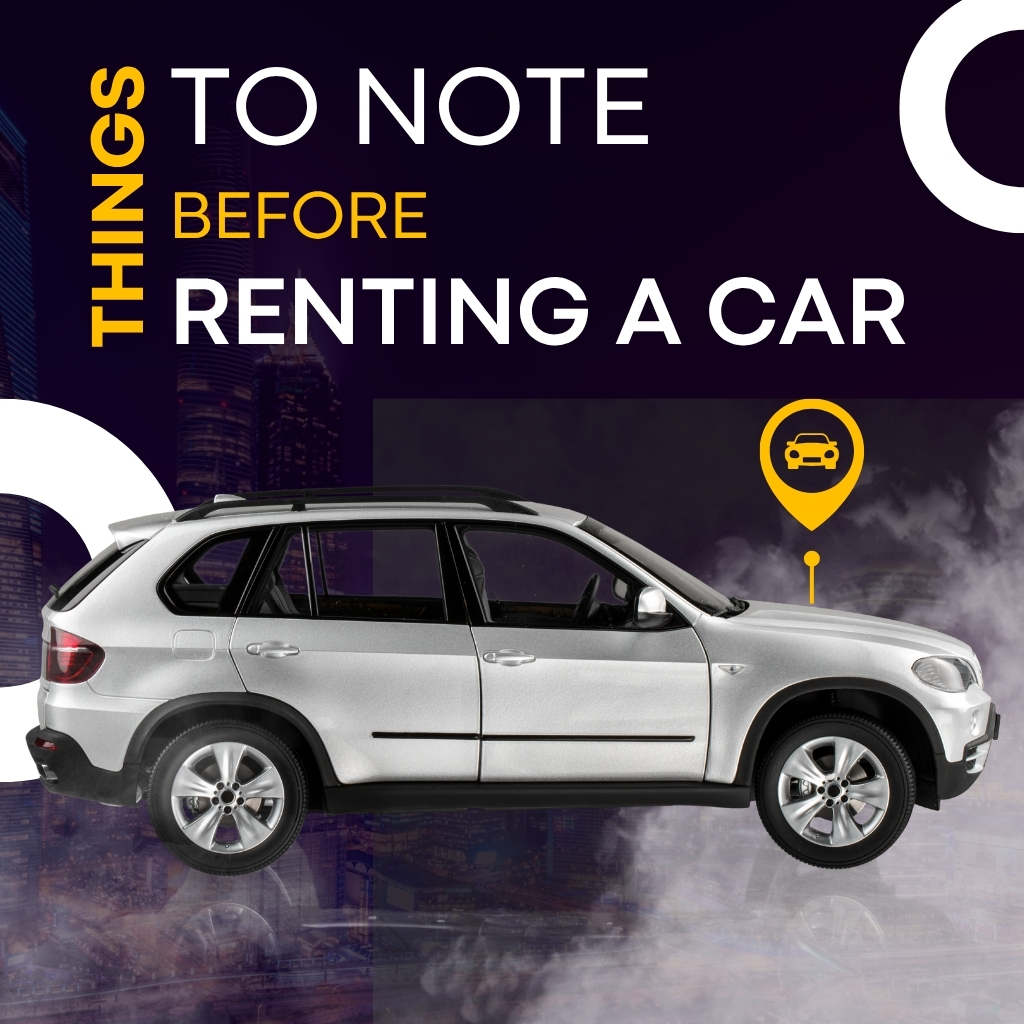Renting a car can be a game-changer for your travel plans, offering flexibility, comfort, and the freedom to explore at your own pace. Whether you’re planning a road trip, traveling for business, or simply need a temporary ride, car rentals can make your journey much more convenient. However, the process isn’t always as straightforward as it seems. There are several things to note before renting a car to ensure you avoid unexpected costs, legal issues, or unnecessary stress.
From understanding rental requirements and insurance options to knowing what to inspect before driving off the lot, being well-prepared can save you time, money, and headaches. This comprehensive guide will walk you through everything you need to know before renting a car, including expert tips, common pitfalls, and answers to frequently asked questions. By the end, you’ll be equipped to make informed decisions and enjoy a smooth, worry-free rental experience.
What to Know Before Renting a Car

Understanding Rental Requirements
Before you even step foot in a rental agency, it’s crucial to know the basic requirements:
- Minimum Age: Most rental companies require drivers to be at least 21 years old, though some may rent to drivers as young as 18 or as old as 25 with additional fees.
- Valid Driver’s License: You must present a valid driver’s license. International travelers may need an International Driving Permit (IDP) alongside their home country license.
- Credit Card: Most rental agencies require a major credit card for the security deposit, though some accept debit cards with restrictions.
- Proof of Insurance: Some companies may ask for proof of insurance or offer their own coverage options.
Comparing Rental Companies
Not all car rental companies are created equal. Consider these factors when choosing:
| Feature | Major Brands (e.g., Hertz, Enterprise) | Local Agencies | Peer-to-Peer Services (e.g., Turo) |
|---|---|---|---|
| Reliability | High | Varies | Varies |
| Price | Moderate to High | Often Lower | Varies |
| Vehicle Selection | Extensive | Limited | Wide, unique options |
| Insurance Options | Comprehensive | Limited | Varies, often optional |
| Customer Support | 24/7, professional | Varies | App-based, varies |
Key Things to Note Before Renting a Car
1. Read the Rental Agreement Carefully
- Mileage Limits: Some rentals have daily or total mileage caps. Exceeding these can result in hefty fees.
- Fuel Policy: Most companies require you to return the car with the same fuel level as when you picked it up. Some offer prepaid fuel options.
- Return Location: Returning the car to a different location may incur extra charges.
- Late Return Fees: Know the grace period and penalties for late returns.
2. Inspect the Vehicle Thoroughly
Before driving off, do a walk-around inspection:
- Check for Scratches, Dents, and Interior Damage: Document any pre-existing damage with photos or videos.
- Test the Lights, Wipers, and Controls: Ensure everything works as expected.
- Check the Tires and Spare: Make sure tires are in good condition and that there’s a spare tire or repair kit.
3. Understand Insurance Options
Insurance can be confusing. Here’s what you need to know:
- Collision Damage Waiver (CDW)/Loss Damage Waiver (LDW): Covers damage to the rental car.
- Liability Insurance: Covers damage to other vehicles or property.
- Personal Accident Insurance: Covers medical costs for you and passengers.
- Personal Effects Coverage: Protects your belongings in the car.
Tip: Check if your personal auto insurance or credit card offers rental car coverage before purchasing additional insurance.
4. Know the Fuel Policy
- Full-to-Full: Pick up and return the car with a full tank.
- Prepaid Fuel: Pay upfront for a full tank; return the car empty.
- Same-to-Same: Return with the same fuel level as at pickup.
Recommendation: Full-to-full is usually the most cost-effective.
5. Understand Additional Fees
Be aware of potential extra charges:
- Young Driver Surcharge: For renters under 25.
- Additional Driver Fee: For adding extra drivers.
- GPS, Child Seats, and Other Add-Ons: These can add up quickly.
- One-Way Rental Fee: For returning the car to a different location.
6. International Rentals: Special Considerations
- Driving Permits: Some countries require an International Driving Permit.
- Local Laws: Familiarize yourself with local driving rules and regulations.
- Border Crossing: Not all rental cars can be taken across borders; check with the agency.
7. Booking Tips for the Best Deal
- Book Early: Prices tend to rise closer to the rental date.
- Compare Online: Use comparison sites to find the best deals.
- Look for Discounts: Membership programs, credit cards, and loyalty programs may offer discounts.
8. Pick-Up and Drop-Off Procedures
- Bring Required Documents: License, credit card, reservation confirmation, and insurance proof.
- Inspect and Document: Take photos at both pick-up and drop-off.
- Get a Receipt: Ensure all charges are correct before leaving.
Common Mistakes to Avoid When Renting a Car

- Not Reading the Fine Print: Overlooking terms can lead to unexpected charges.
- Ignoring Insurance Options: Either overpaying or being underinsured.
- Returning the Car Late: Even a few minutes late can incur extra fees.
- Not Refueling: Returning with less fuel than required results in high refueling charges.
- Forgetting to Inspect the Car: You could be blamed for pre-existing damage.
Comparison Table: Rental Car Insurance Options
| Insurance Type | What It Covers | Is It Required? | Typical Cost Per Day |
|---|---|---|---|
| Collision Damage Waiver | Damage to rental vehicle | Optional | $10–$30 |
| Liability Insurance | Damage to others/property | Often included | $7–$15 |
| Personal Accident Insurance | Medical costs for driver/passengers | Optional | $1–$7 |
| Personal Effects Coverage | Theft/damage to personal belongings | Optional | $1–$5 |
FAQ
What documents do I need to rent a car?
You typically need a valid driver’s license, a credit card, and sometimes proof of insurance. International travelers may also need an International Driving Permit.
Is it cheaper to rent a car online or in person?
Booking online in advance is usually cheaper and offers more options compared to walk-in rates.
Can someone else drive the rental car?
Only if they are listed as an additional driver on the rental agreement. There may be an extra fee.
What happens if I return the car late?
Most companies charge a late fee, which can be a full day’s rate even for a short delay.
Does my credit card cover rental car insurance?
Many credit cards offer some form of rental car insurance, but coverage varies. Check with your card issuer before declining the rental company’s insurance.
Can I rent a car without a credit card?
Some companies accept debit cards, but there may be additional requirements or restrictions.
What should I do if the rental car breaks down?
Contact the rental company immediately. Most offer roadside assistance as part of the rental agreement.
Conclusion
Renting a car can greatly enhance your travel experience, but it’s essential to be prepared and informed. By understanding the things to note before renting a car—such as rental requirements, insurance options, potential fees, and inspection procedures—you can avoid common pitfalls and enjoy a smooth, stress-free journey. Always read the rental agreement carefully, inspect the vehicle, and make sure you’re comfortable with the insurance coverage.
Final Takeaway:
Preparation is key. Take the time to compare rental companies, understand your insurance options, and familiarize yourself with the terms and conditions. This will help you save money, avoid surprises, and make the most of your rental experience.
Recommended Car Rental Companies
If you’re ready to book, here are some reputable car rental companies to consider:
- Enterprise Rent-A-Car: Known for excellent customer service and a wide range of vehicles.
- Hertz: Offers global coverage and premium car options.
- Avis: Great for business travelers and loyalty rewards.
- Budget: Affordable rates and flexible rental options.
- Turo: Peer-to-peer rentals for unique cars and flexible terms.
No matter which company you choose, keep these tips in mind to ensure a hassle-free rental experience. Safe travels!